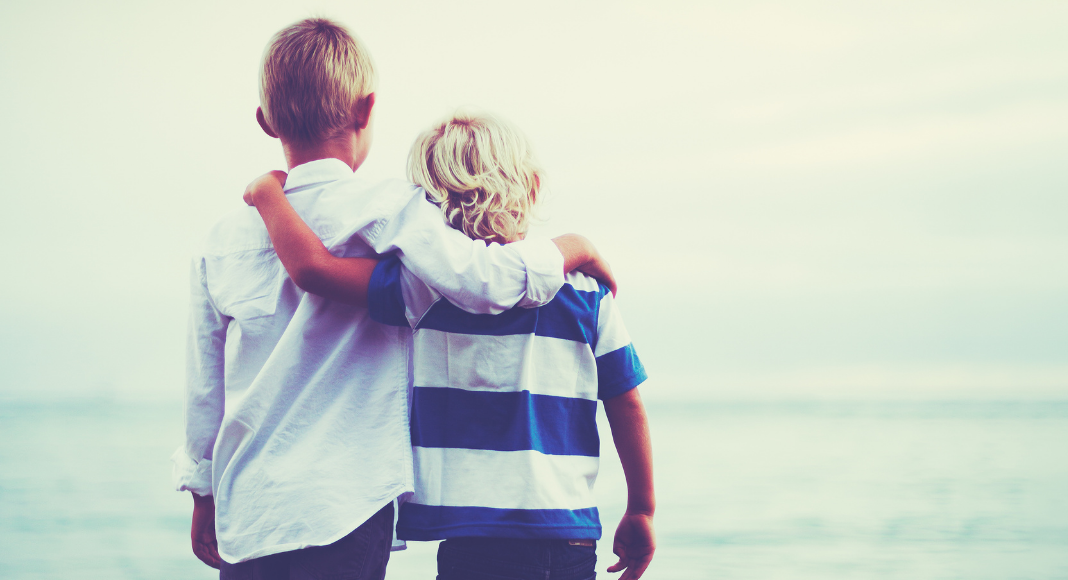 I took time off from blogging these past few months because I had so much on my plate and had to take a step back and prioritize. I appreciate the help I received from my friends and family to let me take a breather. Since I was calmer and more observant, I took some time to learn. I participated in workshops on social-emotional learning to be a better person, mom, and teacher. This helped me reflect on how we, as a generation of moms, are mothering our children
I took time off from blogging these past few months because I had so much on my plate and had to take a step back and prioritize. I appreciate the help I received from my friends and family to let me take a breather. Since I was calmer and more observant, I took some time to learn. I participated in workshops on social-emotional learning to be a better person, mom, and teacher. This helped me reflect on how we, as a generation of moms, are mothering our children
I’ve been learning more and immersing myself in the Conscious Discipline approach, which has changed how I parent. I’ve had a couple of experiences that have served me as practice for my new set of skills. Although I still have a long way to go, they left me thinking about how much we sometimes overthink our mothering or parenting.
We worry so much about many things, and we forget to let them be kids. We fail to give them space to solve their problems. We want to be perfect, and we don’t want to make mistakes. Sometimes out of love, we do things we really shouldn’t do, and we step on boundaries and put our noses where they don’t belong, even when it comes to our kids.
Children will make mistakes, but those mistakes in our eyes can be perceived differently. And again, there is a fine line between handling these mistakes properly and when we overstep.
For example, a child sees their friend after the weekend or a holiday, and they take them by their shoulders and move them back and forth, saying, “I didn’t see you yesterday!” Let’s stop and think. What is the child saying with these actions? They are probably saying, “Hey! I am so excited to see you! You are my friend, and I missed you yesterday!” As in the example, some kids are more emotionally intelligent and will use their words instead of using physical contact. Maybe they have been here in this country their whole life and know that people like to respect a wider physical space. However, depending on their age, cultural background, and family dynamics, this situation and how they respond will look differently.
Now, the problem here is that when an adult sees this and steps in without knowing the context, they start adding tags to the situation: “Oh, this kid grabbed the other and shook them, how violent! They did it out of the blue! So aggressive!” But they didn’t notice the other kid laughed and hugged or high-fived them later, and they went on talking happily because they were friends. They also don’t consider that maybe for one kid, this is how they show love or excitement, and the other is ok with receiving it this way.
Now, this example is taken out from an actual real-life situation. In other countries, even if there were something to be solved because of what the uninformed adult mentioned, this would have been solved by the children or their responsible caretakers without any issues, but here, how is this normally solved? I will leave it to your imagination, so you can reflect on how you would have acted if you had seen this.
Do you think there is a better way to handle a situation like this? Think about it. What if you were the teacher/monitor who saw this at school? Or what if you were at the playground and this happened on a play date, and you are the mother of the excited kid? Or the mother of the kid who was on the other end of the excitement? How do you think this would have evolved with your kids’ friends’ parents? Would it have been a problem? Would the other parent overreact?
I wouldn’t have done anything. I would have let my kid say something. If they come to me and complains about the situation, I would have said something like, “Well, he was excited! He loves you, but maybe tell him that you don’t like being grabbed like this and that although you are so excited to see him too, you prefer if he tells you and gives you a gentle hug or a high five. Do you think you can do that? Let’s practice.”
Maybe I see things like this because I have the eyes of a teacher and not just a mom, and the years of experience with children allow me to observe from afar and only step in when I see someone is mad and getting frustrated could escalate.
Now, if I were the mom of the child who was excited and I saw the other kid was happy (or not), maybe I would comment either at the moment or at home and remind him to be gentler. If I knew the other person is more delicate, I would have said something at the time, like, “Honey, you know your friend doesn’t like being treated this way. I know you are excited to see her, but let’s do it again softly and tell her this. Let’s practice.” And then I would have moved on and let them play without any fuss over it.
I understand there are extremes, and believe me, I have been on both ends with my kids. However, the point I want to make here is: some situations require us to intervene and help the kids, not judging them, and not doing it for them, but being their voice and helping them process their feelings, help them rationalize what is going on and allow them to explain why they did something and then practice the correct behavior and expect to do it on their own. This is only when it is needed. Let’s not over helicopter the children. Allow them to get to know their likes and dislikes, give them strategies at home, talk about scenarios that could happen and how to respond. Empower them, but don’t do their job.




















